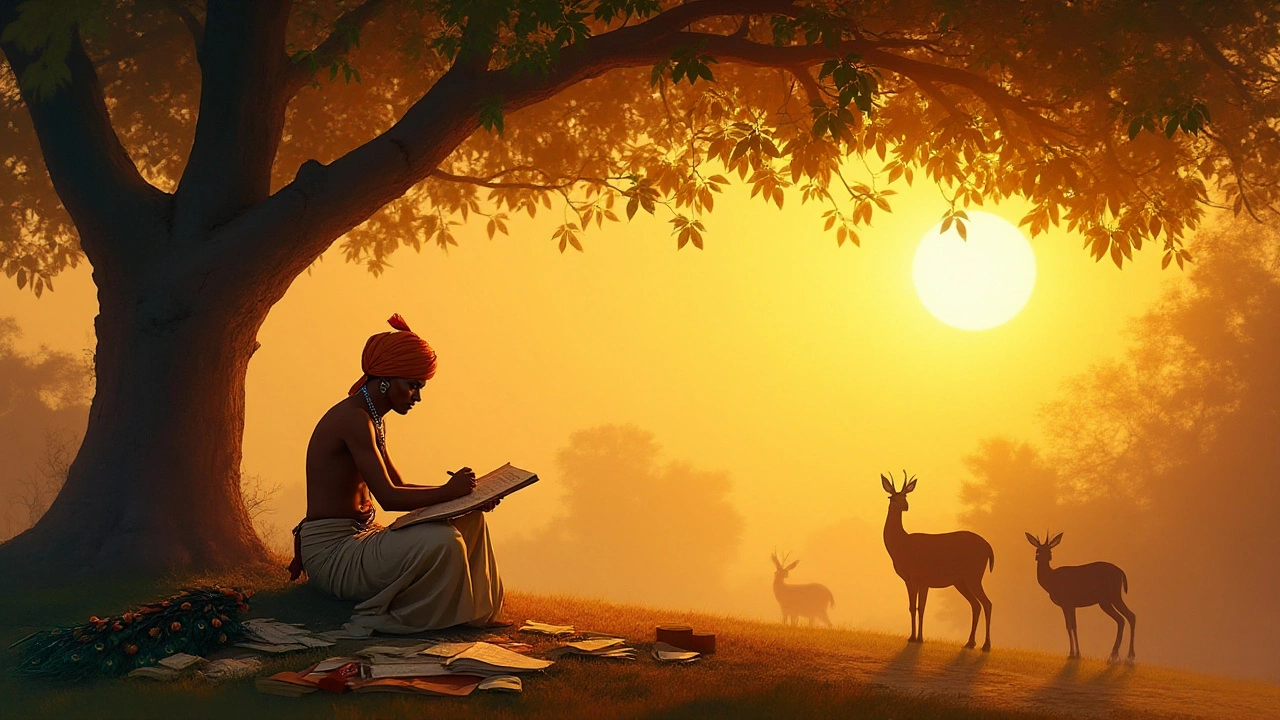Greatest Indian Poet – Who Tops the List and Why?
When you hear "greatest Indian poet" you probably think of a name that pops up in school, movies, or a family gathering. It isn’t just about fame; it’s about impact, language mastery, and how many people still quote the verses today. Below we break down the key traits that lift a poet to legendary status and point you to the writers you should start reading right now.
Traits That Make a Poet “Great”
First, a great poet talks to every generation. Whether it’s a 12‑year‑old or a senior, the words still click. Second, the poet’s style shapes the language – think of how Ghalib’s couplets changed Urdu or how Tagore’s English poems opened doors to the world. Third, the poet’s themes survive: love, nature, spirituality, and social justice keep their work alive in songs, movies, and daily conversations.
Lastly, a poet’s influence spreads beyond books. Look for references in Bollywood lyrics, school textbooks, or even political speeches. If you spot a poet’s name everywhere, that’s a strong sign they’re among the greatest.
Must‑Read Poets to Kickstart Your Journey
Kalidasa – The ancient Sanskrit master who gave us “Meghaduta” and “Raghuvamsha.” His vivid imagery makes even modern readers picture clouds and rivers. A quick read: the opening of “Meghaduta” – it’s like a postcard from a lover.
Kabir – A 15th‑century mystic who used simple couplets to question religion and celebrate humanity. His verses are short, sweet, and perfect for sharing on WhatsApp.
Tulsidas – Best known for the “Ramcharitmanas,” his devotional poetry blends storytelling with moral lessons. Try the “Hanuman Chalisa” for a burst of energy.
Mirza Ghalib – The Urdu genius whose ghazals turn heartbreak into art. A classic line, “Hazaaron khwahishen aisi,” still pops up in memes. Read his couplets to feel the depth of love and loss.
Rabindranath Tagore – The Nobel laureate who wrote in Bengali and English. “Gitanjali” gives you a taste of spiritual calm, while “Where the mind is without fear” fuels inspiration.
These five represent different eras, languages, and styles, yet each is consistently called one of the greatest Indian poets. Start with short poems, then move to longer works as you get comfortable.
Want a quick way to explore? Grab a free e‑book or a mobile app that offers daily verses. Set a reminder for 5 minutes each morning, read a couplet, and note what feels right. You’ll notice patterns – most great poets use simple language, strong images, and a rhythm that sticks.
Finally, share what you like. Post a line on social media, discuss it with friends, or write your own short verse inspired by the master. The more you use the words, the deeper the connection.
So, who is the greatest Indian poet? It depends on what moves you, but the names above are a safe bet. Dive into their poems, feel the emotions, and you’ll quickly see why they’re still celebrated today.
India's rich literary history has produced many poets who have left indelible marks on its cultural tapestry. From ancient times to the modern era, poets have played a pivotal role in shaping the regional and national identity. This article explores the myriad of influences, themes, and the life stories of poets who have been celebrated as the greatest in India's history. It dives into the beauty of their work and the contributions they made to the world of poetry.
More